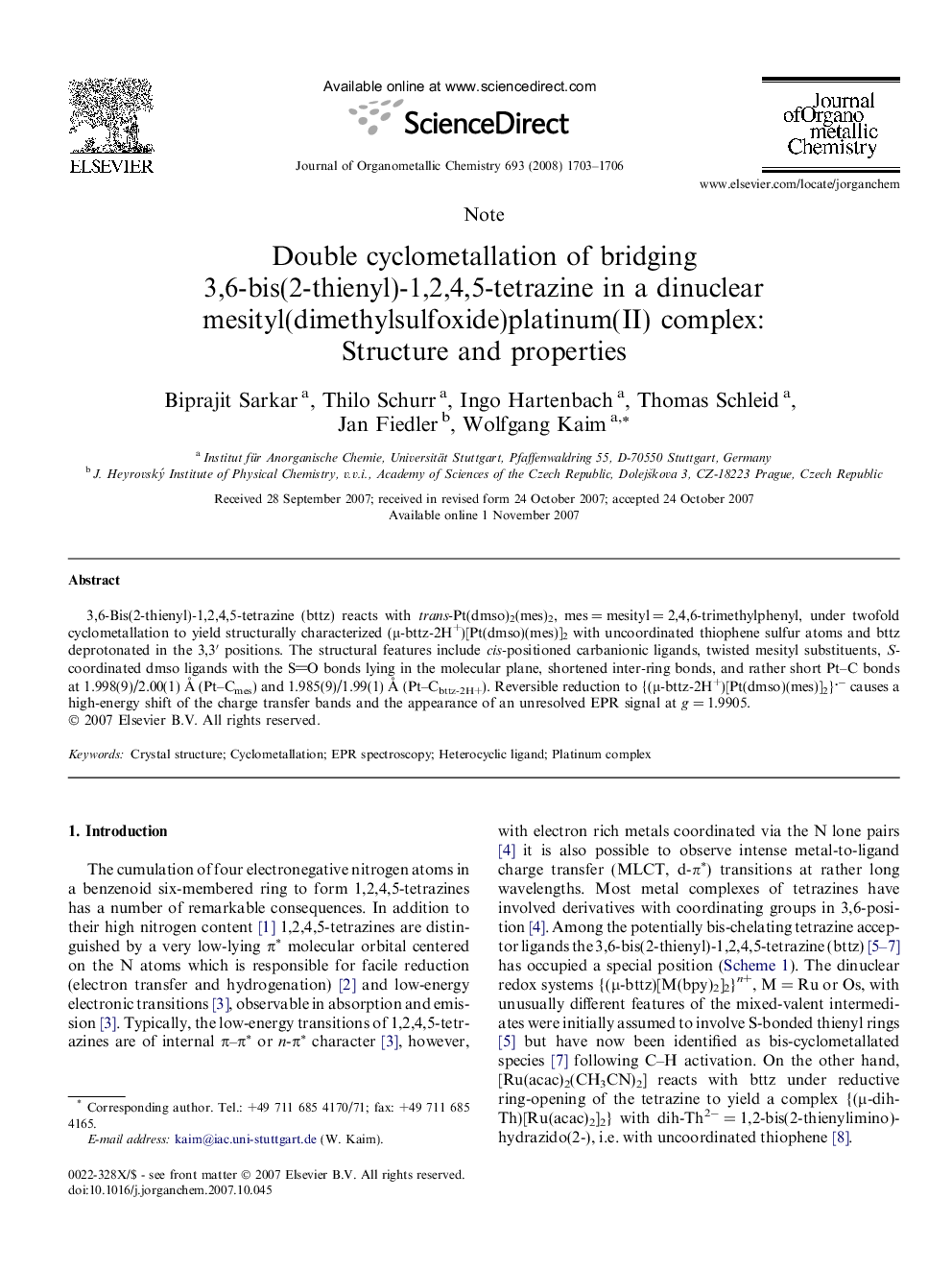| Article ID | Journal | Published Year | Pages | File Type |
|---|---|---|---|---|
| 1328008 | Journal of Organometallic Chemistry | 2008 | 4 Pages |
3,6-Bis(2-thienyl)-1,2,4,5-tetrazine (bttz) reacts with trans-Pt(dmso)2(mes)2, mes = mesityl = 2,4,6-trimethylphenyl, under twofold cyclometallation to yield structurally characterized (μ-bttz-2H+)[Pt(dmso)(mes)]2 with uncoordinated thiophene sulfur atoms and bttz deprotonated in the 3,3′ positions. The structural features include cis-positioned carbanionic ligands, twisted mesityl substituents, S-coordinated dmso ligands with the SO bonds lying in the molecular plane, shortened inter-ring bonds, and rather short Pt–C bonds at 1.998(9)/2.00(1) Å (Pt–Cmes) and 1.985(9)/1.99(1) Å (Pt–Cbttz-2H+). Reversible reduction to {(μ-bttz-2H+)[Pt(dmso)(mes)]2}− causes a high-energy shift of the charge transfer bands and the appearance of an unresolved EPR signal at g = 1.9905.
Graphical abstractBttz reacts with trans-Pt(dmso)2(mes)2 under twofold cyclometallation to yield (μ-bttz-2H+)[Pt(dmso)(mes)]2 with uncoordinated thiophene S. Reversible reduction is possible causing a high-energy shift of the charge transfer bands and the emergence of an unresolved EPR signal.Figure optionsDownload full-size imageDownload as PowerPoint slide
